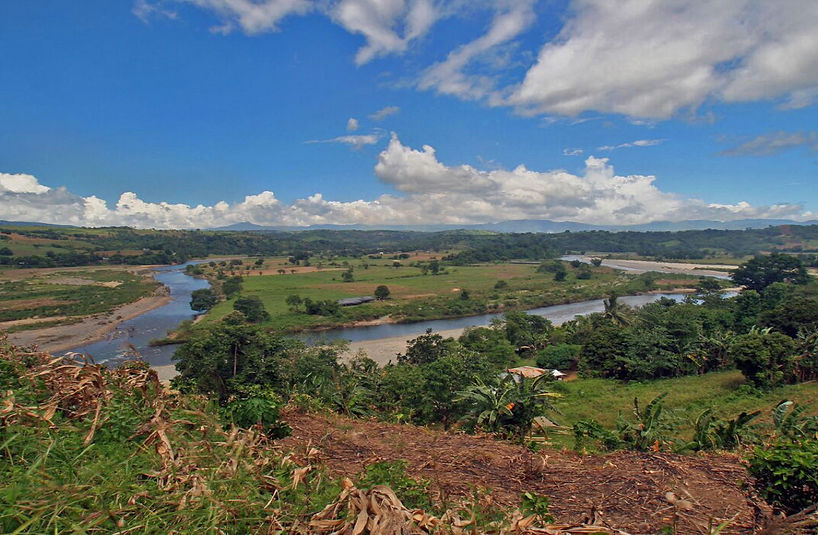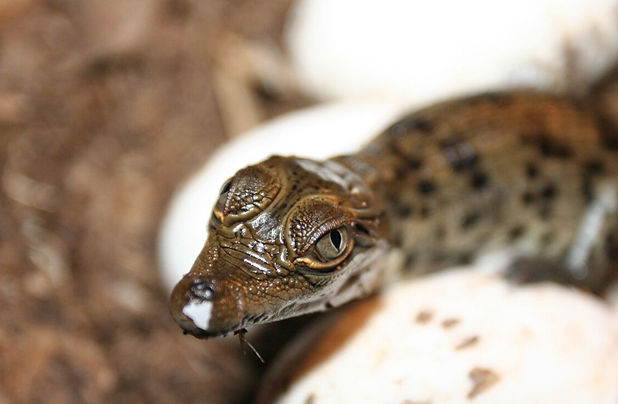

PROTECTING THE WORLD'S RAREST CROCODILE
MABUWAYA
The Mabuwaya Foundation has been instrumental in reversing the dramatic decline of the rarest crocodile in the world. But more than that, its approach to conservation, involving local communities, education and awareness-raising, has had a hugely positive impact on forest and freshwater systems in Northern Luzon, both for the people and the species living in and around them.

MABUWAYA PROJECT OVERVIEW:
Charity Partner: Synchronicity Earth
Location: Northern Luzon, Philippines
Total Cost: £75,000
Funding Sought: £15,000 from 5 Corporates
Duration: Donations over a 2 or 3 year period
Mabuwaya Foundation is helping to restore some of the world’s most degraded freshwater and forest habitats, breathing life back into waterways and forests and benefitting local people.
SYNCHRONICITY EARTH
"
The Philippines is one of the world’s biodiversity hotspots, home to a staggering number of endemic species; some of its larger islands hold more endemics than exist in many entire countries. Yet it also has some of the most heavily degraded forest and freshwater systems in the world, which has led to many of these endemic species suffering through habitat loss and alteration, particularly between the 1990s and early 2000s.
One such species is the Philippine crocodile, which was only rediscovered in 1999. This resulted in the establishment of the Mabuwaya Foundation to arrest the continuing demise of this rare crocodile. In 2000, there were less than 20 known crocodiles but thanks to Mabuwaya, there are now over 100 individuals. Crocodile killings have declined and their wetland habitats have begun to be restored and are already much improved.
Synchronicity Earth finds and supports many small, locally based organisations that are really making a difference - The Mabuwaya Foundation is one such group. It has undergone Synchronicity Earth’s rigorous due diligence and passed with flying colours.
It has recently been recognised by the prestigious Whitley Fund for Nature and the Parker/Gentry Award for Conservation Biology for its outstanding contribution to conservation.
However, Mabuwaya is still a small organisation, relying heavily on volunteer time and, like many charities, it would really benefit from longer-term funding to really kick-start important initiatives and projects such as this and take them to the next level.
When the Philippine crocodile was rediscovered in 1999, it was clear that much work was needed to ensure its long-term survival in the wild. Thanks to Mabuwaya and its supporters, crocodile numbers have grown significantly, but they are still low and the species remains vulnerable to extinction.
Mabuwaya works closely with local communities, running education and research initiatives, and community-led forest and wetland regeneration programmes. It also rears young crocodiles for release back into the wild to ensure increased survival rates, and to help restore a balanced ecological system.
As Mabuwaya has grown, its remit has gone beyond the crocodile and the organisation now works more broadly to save the remaining Philippine forests and freshwater ecosystems, whilst retaining their focus on the survival of the crocodile. They are also helping other species such as the Critically Endangered Isabela oriole (a small bright yellow bird) and the Endangered golden-capped fruit bat.
Mabuwaya works with local farmers and landholders to reforest areas and is starting to build a model of effective agroforestry, where crop trees are interspersed with native trees. This will improve food security and support livelihoods as well as benefiting biodiversity and ecosystems. By employing a mixed model of agroforestry and reforestation techniques, Mabuwaya are working to improve the long-term success of the plantations, helping local people as well as wildlife.
Seedlings are collected from natural forests in the region and grown in nurseries which are managed by local community members until they are ready to be transplanted back to the wild. As well as allowing regrowth of forests in previously destroyed areas; this also helps to reduce soil erosion, improve water retention and recreate natural boundaries between local residents and their livestock and the crocodiles.
To register your interest in the Mabuwaya Green Square Mile please send an email to chrislivemore@thegreensquaremile.com

